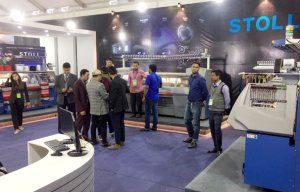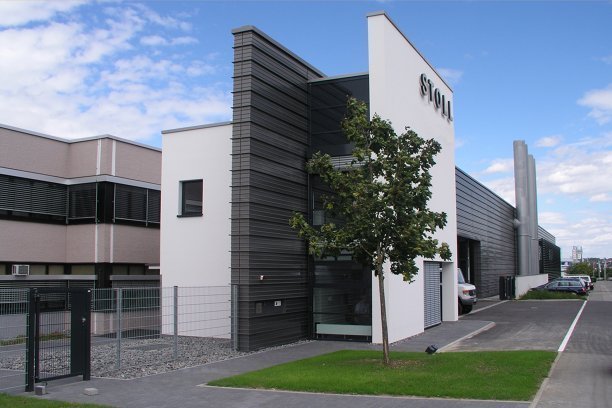
Stoll presents latest innovations in Bangladesh
Editor’s View


Iconic flat knitting machine brand draws investor interest amid closure plans.

13th May 2025
Billy Hunter
|
Reutlingen, Germany
Conditions are now ripe for an investor to step in and reshape the future of 152-year-old German flat knitting machine builder Stoll, a pivotal player in the global textile machinery sector.
Following months of speculation, the Karl Mayer Group has confirmed that Stoll’s Reutlingen site is scheduled to close in November 2025, after reporting sustained losses. Despite the announcement, some industry insiders remain optimistic that a buyer will emerge to preserve the Stoll name and its technological legacy.
Several Stoll users have approached Knitting Industry over the past few months with concerns over the potential closure. Our view remains that the company - known for its advanced flat knitting technology, deep expertise, and loyal customer base across knitwear, footwear, and technical textiles - holds significant value. These attributes, along with an efficient global sales and service network, make Stoll too important to just disappear.
Globally, it is estimated that around 130,000 modern Stoll flat knitting machines are in operation. These machines require ongoing support and maintenance, representing a huge installed base. Key knitwear and footwear projects around the world rely heavily on Stoll’s equipment, including many of the most prominent global brands and manufacturers.
Karl Mayer has acknowledged that a team will remain in Reutlingen to handle service and spare parts once machine production ends. Furthermore, production at the Changzhou site in China will continue “for the time being.” Will these factors and the conclusion of discussions with the Works Council in Reutlingen regarding the closure pave the way for a smoother transition for potential investors?
Speculation continues that a competitor such as Cixing, the Chinese flat knitting machine leader that acquired Swiss brand Steiger in 2010, could be a strong contender to purchase the Stoll business. A similar acquisition would allow Cixing to further deepen its technological capabilities and expand its global influence further. There has also been further conjecture that Stoll’s Japanese competitor Shima Seiki, the industry’s technology leader, could be interested. Others have asked whether Italy’s leading textile machinery manufacturer Lonati Group might be a good fit.
Under a new owner, Reutlingen could retain a focused R&D centre and limited production of Stoll’s flagship ADF high-tech models, while entry-level and high-productivity CMS machines could be manufactured in China. For any investor known for scaling innovation rapidly, this type of structure could offer strategic value.
Stoll’s innovative heritage continues to be a major draw. The decades-long rivalry between Stoll and Japan’s Shima Seiki has propelled the flat knitting sector forward. In recent years, Chinese manufacturers have joined that competition, further accelerating innovation.
Stoll was acquired by Karl Mayer in 2020, but the partnership faced challenges as the market shifted. The golden era where top brands each produced over 10,000 machines per year has ended and today’s market is more fragmented and more competitive, particularly with the emergence of strong players from Asia.
Founded in 1873 by Heinrich Stoll in Reutlingen, the company became a technological cornerstone in the industrialisation of knitwear. Over the decades, Stoll led innovations in automation, electronic controls, and digital knitting systems. Its Stoll Fashion & Technology Centre has long supported designers and technicians worldwide.
Now, as the industry evolves once again, many believe that Stoll’s name, experience, and innovations remain essential to its future. With the right strategic investor, the brand could be revitalised for a new era. But time is short.

Business intelligence for the fibre, textiles and apparel industries: technologies, innovations, markets, investments, trade policy, sourcing, strategy...
Find out more